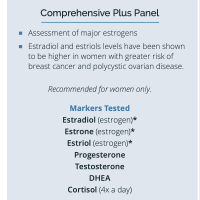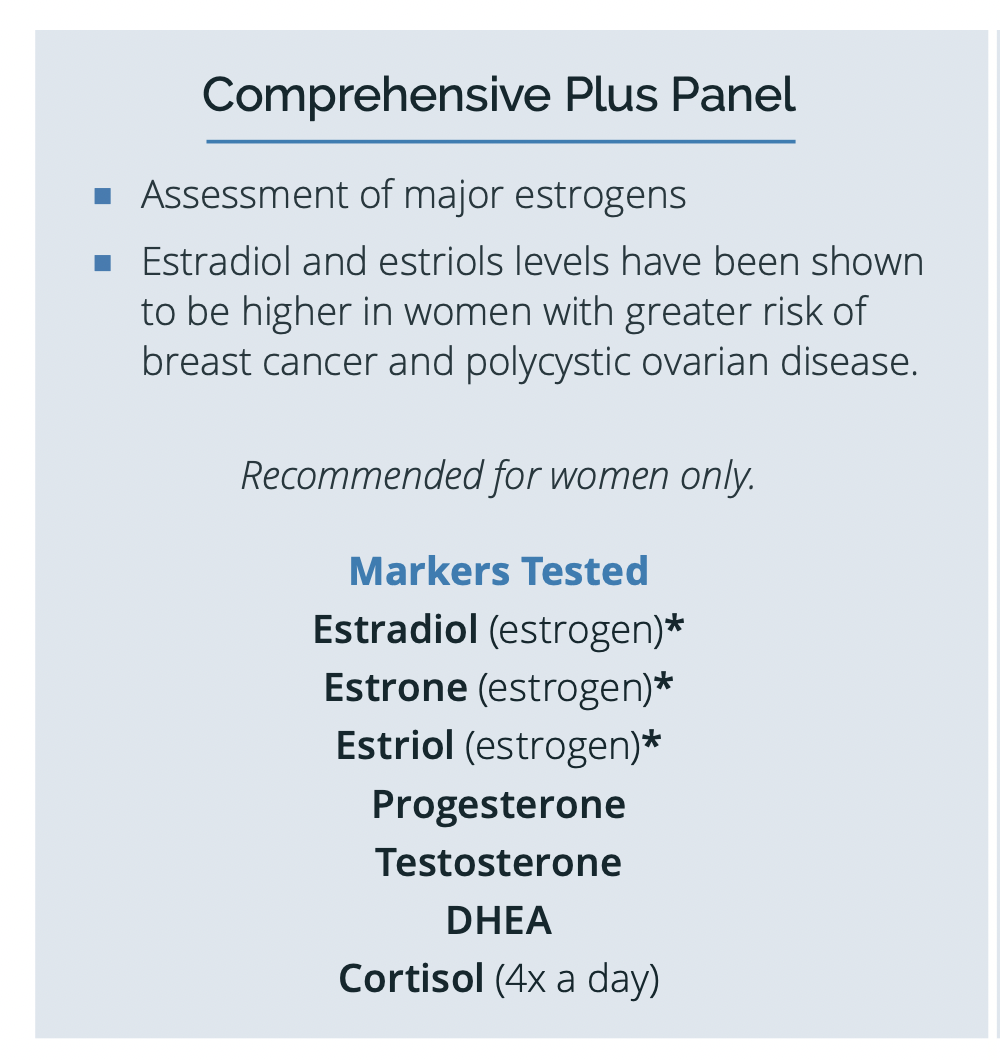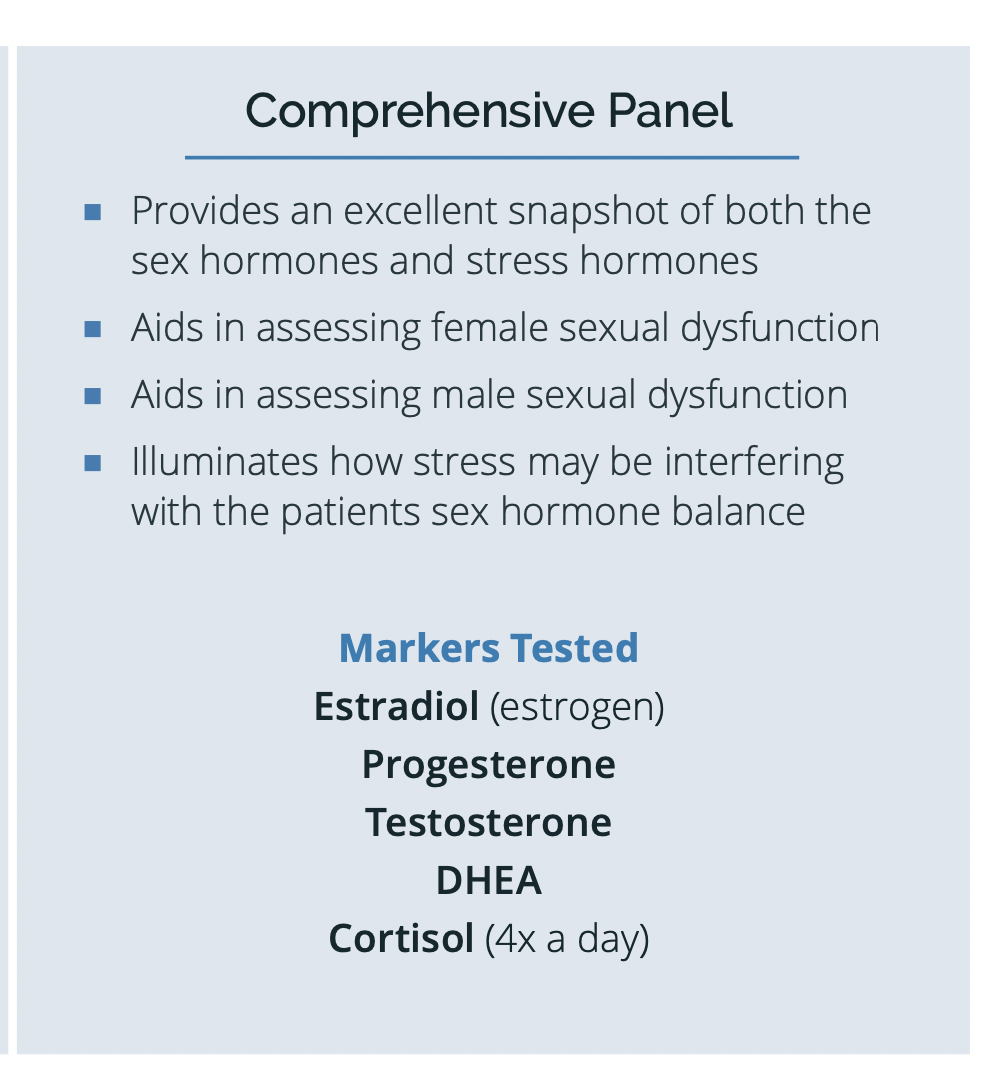
Are Your Hormones Out of Balance?
Hormones are vital in maintaining physical and mental health, as imbalances can lead to serious health problems. Both men and women produce hormones like estrogen and testosterone, and balance is critical for optimal health. Hormones like estrogen and testosterone are vital to your well-being, and a hormonal imbalance can cause symptoms like fatigue, mood issues, acne, and weight gain. Fatigue is one of the most common symptoms of a hormone imbalance. Did you know that excess progesterone can make you sleepy? Your hormones are essential for regulating numerous processes in the body, including metabolism, appetite, sleep cycles, reproductive cycles, sexual function, body temperature, and mood.
No surprise that even the slightest hormone imbalance will noticeably affect your overall health and well-being.
The old “one-size-fits-all” approach to hormone replacement therapy is outdated, so I utilize the benefits of functional medicine lab testing. It offers comprehensive salivary hormone profiles that measure both sex and stress hormones. Salivary measurement of hormones is non-invasive and convenient to asses unbound biologically active hormone levels. The test markers help identify hormonal imbalances, allowing personalized hormone therapies and nutritional interventions.
The major sex hormones to evaluate include estradiol, progesterone, testosterone, estrone, and estriol. Additionally, the primary adrenal hormones are DHEA and cortisol. Testing for these hormones can provide valuable information about deficiencies, excesses, and daily patterns, allowing for a personalized treatment approach that is much more effective than the old “shotgun” or generic approach.
Below is an overview of analytes included in the comprehensive and comprehensive plus panels:
Estradiol (E2)
Estrone (E1)
Estriol (E3)
Progesterone (Pg)
Testosterone
DHEA
Cortisol (4X)
EQ (E3/(E1 + E2)) Ratio
Pg/E2 Ratio
Why Analyze Female Sex Hormones?
I like to say a woman’s body is always under construction! As girls mature into women, hormonal changes orchestrate the process leading to the beginning of menstruation. There are two phases during a woman’s menstrual cycle; the first phase is considered the estrogen-dominant phase (before ovulation), and the second phase is progesterone-dominant (post-ovulation). The monthly shifts between estrogen to progesterone are crucial to a woman’s health.
Women usually produce small amounts of testosterone. This “male” hormone helps women stay strong, fit, and sexually active and may protect against breast cancer and cardiovascular disease.
DHEA is the precursor to female and male sex hormones and is released with cortisol under stress conditions.
Measuring hormone levels is vital in achieving total wellness since many “vague” symptoms result from hormone imbalances and can be treated if correctly identified.
Symptoms of the reproductive and menopausal years are:
■ Breast pain
■ Breast tenderness
■ Cysts and lumps (breast, uterine)
■ Fibrocystic breasts
■ Depression/insomnia
■ Irregular menstrual cycles
■ Hot flashes
■ Weight gain
■ Brain fog
Why Analyze Male Sex Hormones?
For men, testosterone is the primary male sex hormone released in pulses throughout the day. Testosterone production rises during puberty. After 35, free testosterone becomes less available due to increased testosterone-binding proteins and a decrease in testosterone-releasing cells. Low testosterone levels or high stress in men’s early 20s or 30s may cause symptoms comparable to the natural decline of testosterone.
DHEA is the precursor to both female and male sex hormones and the stress hormone cortisol. The balance of testosterone with other estrogens, progesterone, DHEA, and cortisol influences men’s health. Higher estrogen levels with low testosterone levels correlate with an increased risk of prostate problems. High cortisol and DHEA can increase anxiety,
lower immunity, destabilize blood sugar, and the risk of cardiovascular disease.
Symptoms of declining testosterone are:
■ Erectile dysfunction
■ Decrease mental ability
■ Insulin resistance
■ Decreased sex drive
■ Lethargy
■ Weight gain
■ Difficult urination
■ Prostate enlargement
■ Decline in muscle strength and mass
■ Bone loss
How Do Stress Hormones Affect Your Body?
Stress comes in many forms: mental, physiological, and environmental, but all forms can generate a physiological response. The capacity to handle daily stress is influenced by factors that strain body systems, such as allergies, environmental pollutants, infections, sleep deprivation, and mental illnesses.
Physical and emotional stress causes cortisol and DHEA release from the adrenal glands. Cortisol helps the body respond to stress by increasing glucose metabolism for quick energy, decreasing immune response, and stimulating other hormones. DHEA heightens your awareness and memory retrieval while reducing emotional response. The stress response is overall beneficial in handling immediate challenges. However, being in a constant “fight or flight” is not healthy, contributing to accelerated aging.
Contemporary life provides little time for people to allow their bodies to recover from stress and feel rejuvenated. Chronic stress impacts cardiovascular health, reproduction, and mental health and increases cancer risk.
Benefits of Analyzing These Hormone Markers Through Saliva
Testing through saliva is easy, non-invasive, and an accurate way to provide a good “snapshot” of your hormone production throughout the day. You want to run a comprehensive saliva hormone test where you collect your saliva 4X throughout the day to gain insight into what is happening with your Corsitol levels. Most doctors measure cortisol by utilizing a blood test at one time of the day and not throughout the day. The hormone in the saliva is the active hormone available for bodily use. This saliva test will be beneficial for you to gain insight into your hormone functioning and have a strategy for an optimal hormone-balancing plan.
Order your hormone test profile, which includes a 40-minute session to review your test results and discuss a hormone-balancing strategy.


Tags: Adrenal Saliva Test, Cortisol Test, DHEA, Female Hormone Test, fertility, functional medicine practitioner, GPL, Hormone Saliva Test, Male Hormone Test, Menopause, Mosaic, Nancy Guberti, Perimenopsause
Leave A Reply (No comments So Far)
No comments yet